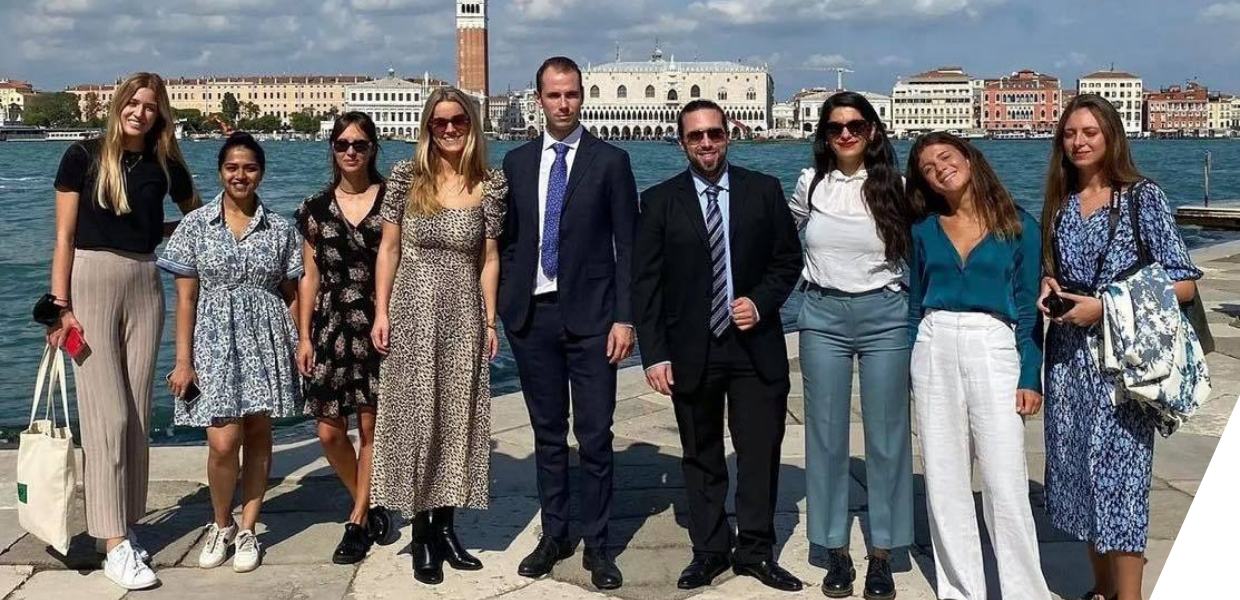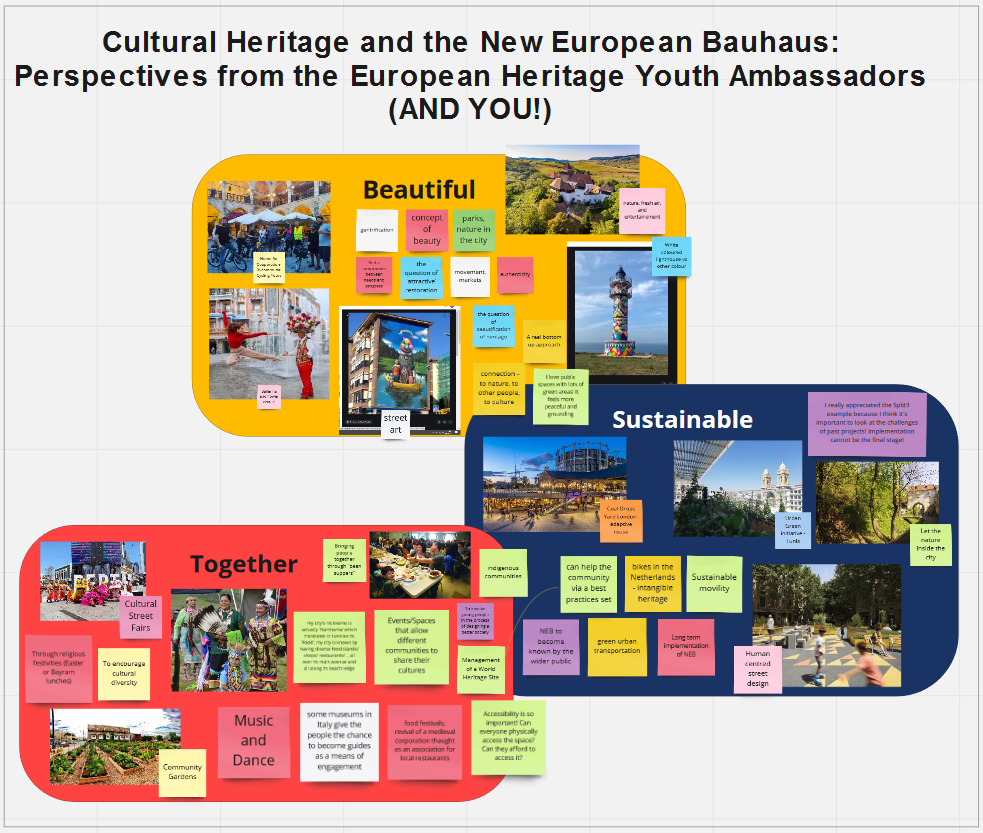And what are their plans for the coming year?
With the growing network, 2022 will allow at least as much engagement, ideas-sharing, creativity, and boost in heritage awareness-raising, which is especially exciting in the frame of the European Year of Youth. For this, we are planning plenty of (online) events and initiatives to further mobilise, build capacity and advocate for youth. We will share the programme soon!
What role does digital technology, practices or engagement play in this work?
The digital approach is now an integral part of our daily lives, and so of heritage related practices too. Heritage documentation, interpretation, and dissemination are also considered crucial tasks that rely heavily on digital approaches. The Youth Ambassadors shaped their interaction primarily via digital exchange. Their transmission of knowledge and dialogue was carried out online, during the monthly online meetings that we organise as well as via social media and platforms. While in-person meetings are more memorable, we believe the digital means of communication has numerous benefits, including increased reach, and higher interactivity and inclusivity.
What advice would you give someone just beginning their career in the cultural heritage sector?
Stay connected! It is essential to meet your peers and open long-lasting dialogues to exchange experiences and best practices. We see an increasing number of networks opening for youth to have a say in policy and future shaping. It could also prove extremely useful to take up a mentor, either someone at the university or within a cultural heritage organisation.
Another suggestion would be to explore different experiences to help you decide which career path within the cultural heritage sector would be the most suitable. There is the collective 'in theory' (what we learn) vs 'in practice' (what we actually do) gap that can be overcome by joining volunteering projects and/or internships. Some volunteering programmes offer mobility opportunities across Europe such as the European Heritage Volunteers and the European Solidarity Corps.
What opportunities can they take advantage of - and what challenges do they face?
Heritage professionals in their early career should take advantage of as many opportunities as possible. The digital transition fostered inclusion and has made it easier to attend all sorts of online training, workshops, webinars, and conferences (see some examples). Not only do these events facilitate networking and build capacity, but they can also provide a better overview of the heritage landscape at all levels of governance.
That said, it can be challenging for young professionals and students to find out about existing heritage organisations, opportunities and main actors. Our organisations are trying to bridge this gap as much as possible, and we encourage you to join Europa Nostra and ESACH, and subscribe to the European Heritage Tribune Newsletter to find out about new opportunities. Also, most of the young professionals we meet these days are still studying. Combining courses, assignments, and other work is challenging, but not impossible with a time management plan in place.
What advice would you give to a cultural heritage institution or organisation that would like to involve and support students and new professionals in their work?
To mainstream a youth dimension into their activities! Young people are not only the future, they are the present and are active agents in the heritage field. It is vital to maintain an open dialogue with students and new professionals, by providing them a platform to voice their concerns and ideas for the future and enhance a fruitful intergenerational dialogue. As heritage organisations, it is our duty to ensure that the young generation is well equipped to face challenges affecting cultural heritage, and at the same time, to listen to their new ideas and perspectives.
How can a student or new professional get involved in the programme?
We would like to invite them to engage with the Youth Ambassadors' work – especially on Instagram (Europa Nostra, ESACH, EHT) – to help increase the reach and visibility of the group’s awareness-raising and advocacy. Or reach out to the Ambassadors and, if they are based in the same country, have a (virtual) coffee to chat about cultural heritage. Hopefully, this would encourage them to apply, in the future, for the 2023 programme!




